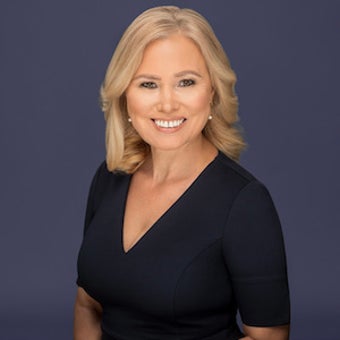Outcome of Ukraine war 'existential' to Putin: Rebekah Koffler
Former U.S. Defense Intelligence Officer Rebekah Koffler joins 'Fox & Friends Weekend' to discuss rising tension between Russia and the West, Putin's chilling message and the deployment of tactical nuclear weapons to Belarus.
Many security analysts believe that Russia and the United States are on the brink of a World War III, as Moscow and Washington’s proxy battle over geopolitical control of Ukraine has crossed the 500-day mark.
In a sign of recent escalation, on Monday, a Ukrainian strike blew up the bridge connecting the Crimean Peninsula with Russia, as Moscow threatened to attack NATO’s "weakest link," a 60-mile strategic corridor known as the "Suwalki Gap" that sits along the Lithuanian-Polish frontier, between Belarus in the east and the Russian exclave of Kaliningrad to the west.
These events followed President Biden’s authorizing on Thursday the deployment of 3,000 reservists to Europe to support NATO and Ukraine. Many Americans, weary of the Washington establishment’s propensity to get entangled in foreign wars - this time, with the world’s largest nuclear power – wonder if Moscow and Washington can simply just get along. Here are three basic reasons why Russia and the United States can never be friends.
RUSSIA'S WAR AGAINST UKRAINE WILL BE BIDEN'S AFGHANISTAN 2.0
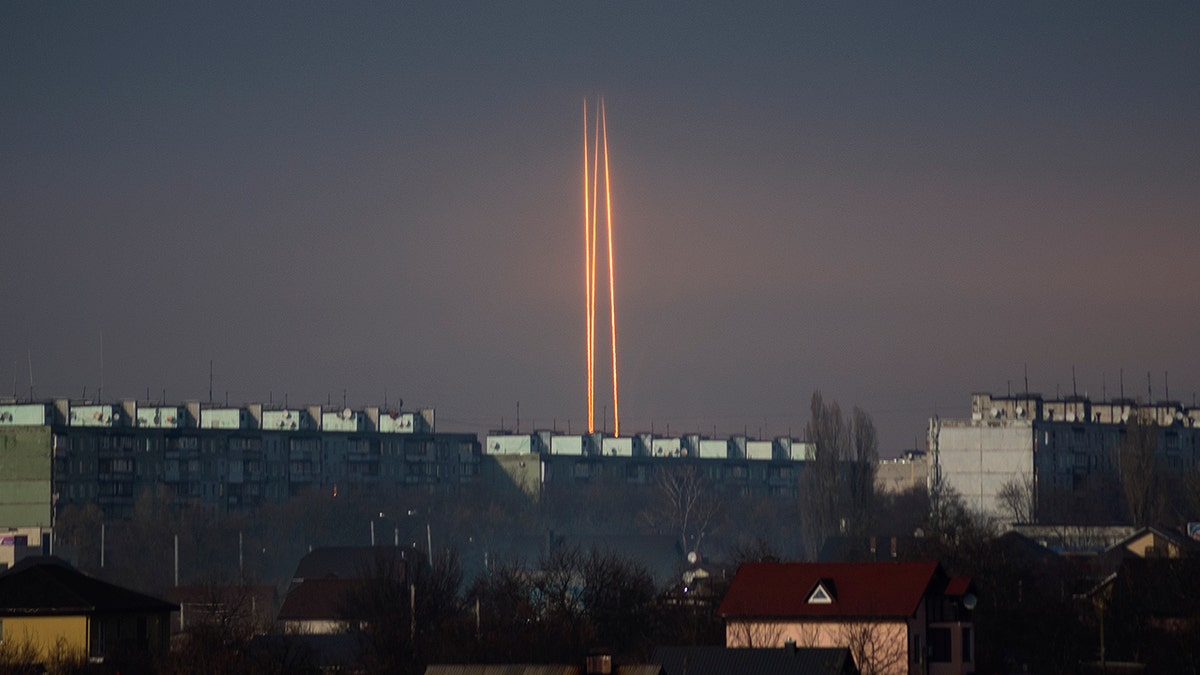
Russia launches rockets against Ukraine on March 9, 2023. Russia and the United States' contest over geopolitical control of Ukraine has crossed the 500-day mark. (AP Photo/Vadim Belikov)
First, there is a deeply rooted, century-long distrust between the two countries that’s not easily erased. Second, each country views itself as exceptional – anointed to shape the world in its own image. And third, American and Russian leaders define their countries’ national interests – such as having geopolitical control over Ukraine, a former Soviet nation – in such a way that has placed them on a geopolitical collision course, long before Putin’s invasion of Ukraine. The current proxy war was a long time coming. Here’s a bit of history.
The United States broke off diplomatic relations with Russia’s new Bolshevik regime in December 1917, shortly after it seized power from Czar Nicholas II during the bloody October Revolution. The United States did not recognize the new Soviet Union until Franklin Roosevelt became president in 1933. It was the last country in the world to do so.
Throughout the post–World War II Cold War, Russia and the United States viewed one another as their chief adversaries, each fearing that the other would unleash a surprise nuclear attack. Global politics were shaped by this antagonistic relationship and largely governed by the doctrine of "mutually assured destruction," or MAD. According to MAD, the Soviet Union and the United States both maintained a portion of their vast nuclear arsenal on a hair-trigger, ensuring a retaliatory strike could swiftly be launched to wipe out the other nation – and the rest of the world with it. This nuclear posture, whereby each superpower effectively held a "cocked and loaded" gun to the other’s head, was supposed to make it unthinkable for either to launch a nuclear strike.
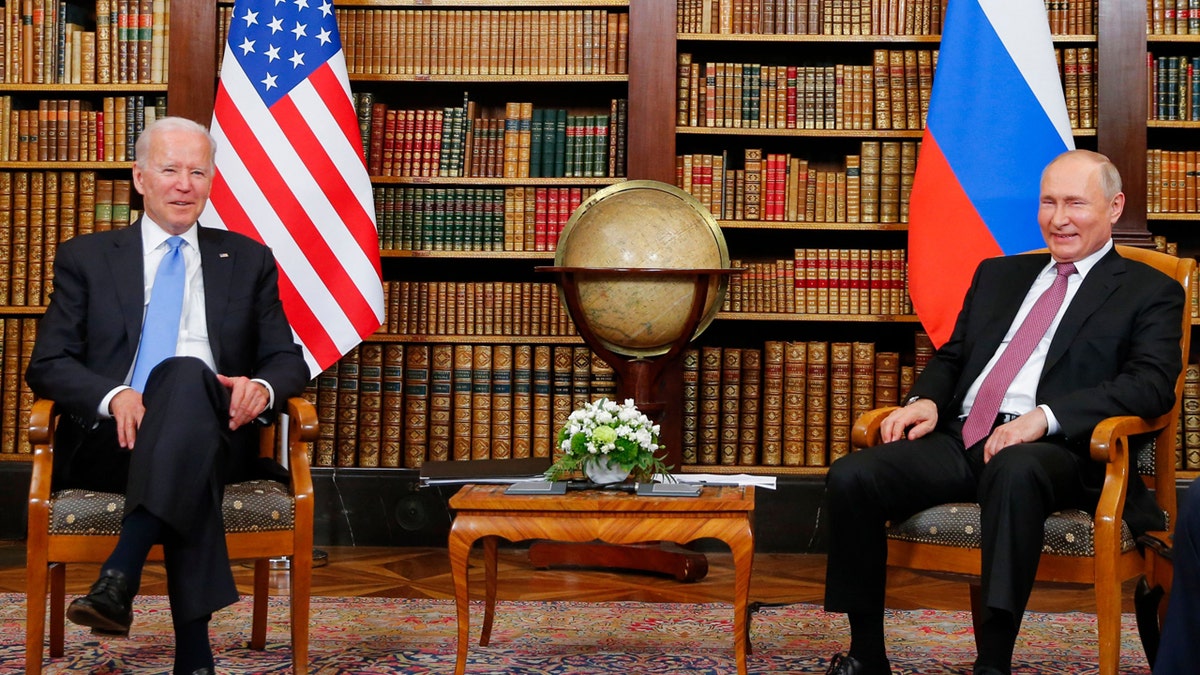
President Biden meets with Valdimir Putin in Geneva on June 16, 2021. The U.S. and Russia have long viewed one another as chief adversaries. (Denis Balibouse/Pool/AFP via Getty Images)
MAD or not, the Soviet Union, according to a formerly top-secret CIA report declassified in 1993, was prepared to wage and win a nuclear war. It is why the Soviets were willing to push confrontation to a very dangerous edge. The Cuban Missile Crisis of 1962, during which the Soviets placed nuclear weapons in Cuba to deter a U.S. invasion following a failed CIA operation to overthrow the Castro regime, is considered to be the closest the two superpowers came to a nuclear conflict.
WE ARE UNDER DIRE THREAT FROM THESE FIVE DANGERS
The legacy of this distrustful, hostile, and fearful relationship persists tenaciously to this day. Russia never abandoned its belief that the United States was its chief rival. Neither has Washington. Paid to be distrustful, national security officials in both countries continue to develop military capabilities and doctrines that would protect their respective countries from the other.
While the public’s fear of nuclear war has subsided, the weapons are still there, ready to be launched within minutes. Russia and America have over 90 percent of the world’s nuclear forces, and their systems are on high alert. Putin views the outcome of his war on Ukraine as existential battle for The end of the world, it turns out, may well be nigh.
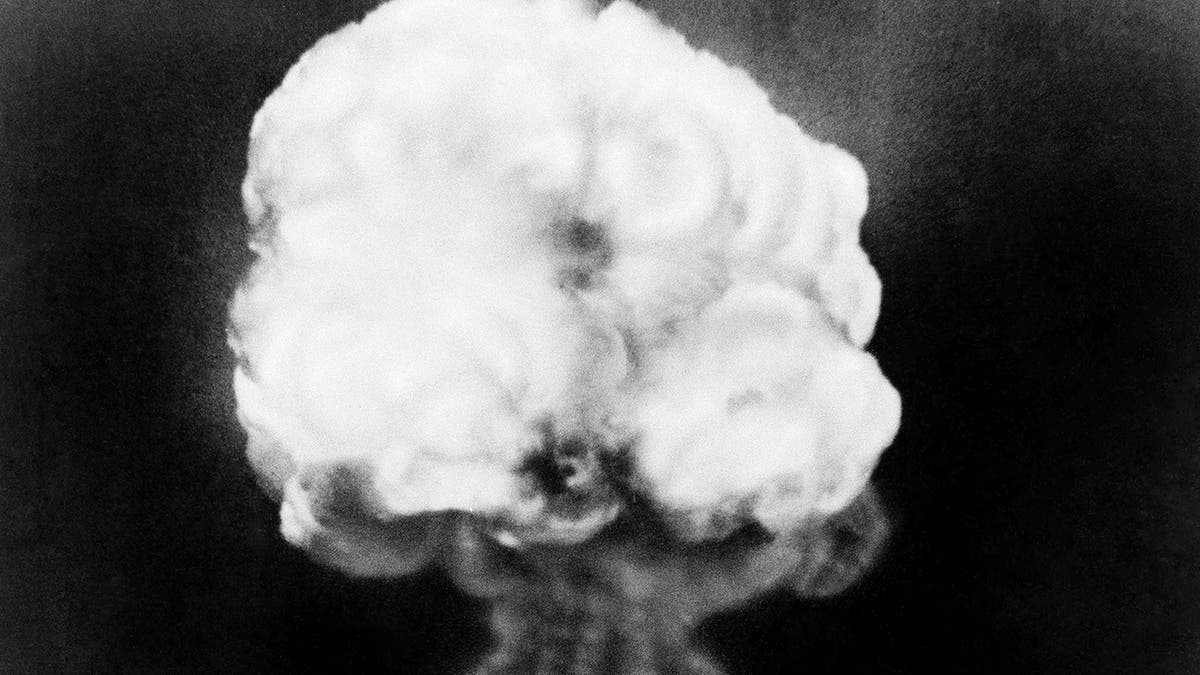
The first atomic explosion at Trinity Test Site, New Mexico, July 16, 1945. Russia and America have over 90% of the world’s nuclear forces. (Associated Press)
Second, the cultures of Russia and the United States are marked by a deeply ingrained sense of uniqueness and superiority, which guides their approaches to national security. Scientific researchers have discovered that cultural differences start emerging in humans as early as three years of age, shaping the way people perceive the world and their relationship to it.
Russians are an enormously proud people. They inhabit the world’s largest country, spanning 11 time zones and teeming with vast natural resources. Russians sent the first satellite and first human into space, invented the periodic table of elements, gave to the world the Nutcracker and Swan Lake ballets, and created some of the world’s most profound literature. And, having sacrificed more than 20 million people in World War II, more than any other nation, Russia also views itself as the world’s defender against fascism.
Throughout history, Russia’s leaders have cultivated the idea of a unique, divinely inspired civilization, neither Eastern nor Western. This sense of imperial exceptionalism, even during communism, was passed down through generations. Imperial czars and communist commissars alike played up Russian mystique and unpredictability, so eloquently memorialized by Winston Churchill, who proclaimed in 1939 that "Russia is a riddle wrapped in a mystery inside an enigma." Churchill also recommended a solution to the riddle that is a touchstone for this book: use Russia’s national interests as a clue to its behavior.
CLICK HERE TO GET THE OPINION NEWSLETTER
Putin, the Kremlin’s current "Czar Vladimir" has revived Russia’s sense of exceptionalism, significantly diminished by losing the Cold War and the USSR’s collapse. Putin has resurrected the narrative of Russia’s being a great power, destined by divine providence for leadership. The Russian people, who suffered a crushing identity crisis after the Soviet Empire’s collapse – a psychological calamity never fully appreciated by American policymakers – embraced Putin’s call to reclaim Mother Russia’s rightful place in the world.
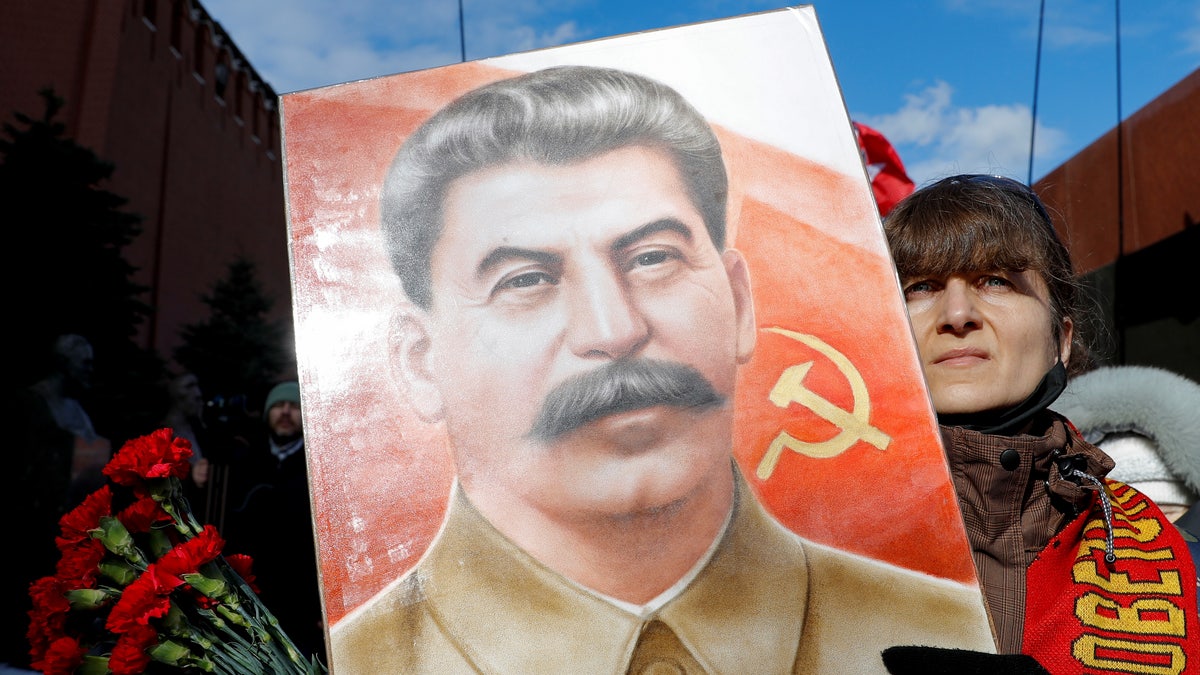
A supporter of the Russian Communist Party attends a ceremony marking the 68th anniversary of Soviet leader Josef Stalin's death, in Moscow on March 5, 2021. (Reuters/Evgenia Novozhenina)
Americans believe in the worth and dignity of the individual, a tradition emanating from the Founders, where everyone has God-given rights to life, liberty, and the pursuit of happiness. These concepts, so obvious to Americans, are alien to Russians who prioritize the well-being of a broader collective. The Russians believe that the nation’s security is superior to individual rights. Russia, ravaged by wars and devastation throughout its one-thousand-year history, is hyper-focused on security. It views too much freedom as chaotic and destabilizing. The Russians, are deeply skeptical of Washington’s motivations. They believe that America is "exporting" democracy to other countries through military interventions to control that country’s politics and economy.
Russia is waging its brutal war on Ukraine to preserve what Moscow views as its strategic buffer zone protecting it from its primary adversary, NATO, which seeks Russia’s strategic defeat, as multiple Washington politicians, including President Biden stated. The United States believes that any country, regardless of its size, can pursue political and economic independence. Americans, therefore, view Moscow’s actions towards post-Soviet states as authoritarian and immoral, rather than balance-of-power politics. Washington’s morality-centered statecraft comes in conflict with Russian nationalism and realpolitik.
Putin will not return Crimea to Ukraine, no matter the cost. It is why he re-deployed his best war fighting force, the Wagner Group, in a strategically optimized position – Belarus, which recently received tactical nuclear weapons from Moscow. From this position, Wagner forces are within striking distance from Kyiv and NATO’s border.
Russia is acutely aware that since the 1940s, American grand strategy has been centered on containment, i.e. preventing the USSR and Russia from dominating Eurasia. President Ronald Reagan’s White House, according to a declassified top secret strategy report, sought "to avoid a nuclear war while preventing a single hostile power or coalition of powers from dominating the Eurasian land-mass or other strategic regions" and "to assist democratic and nationalist movements where possible in the struggle against totalitarian regimes."
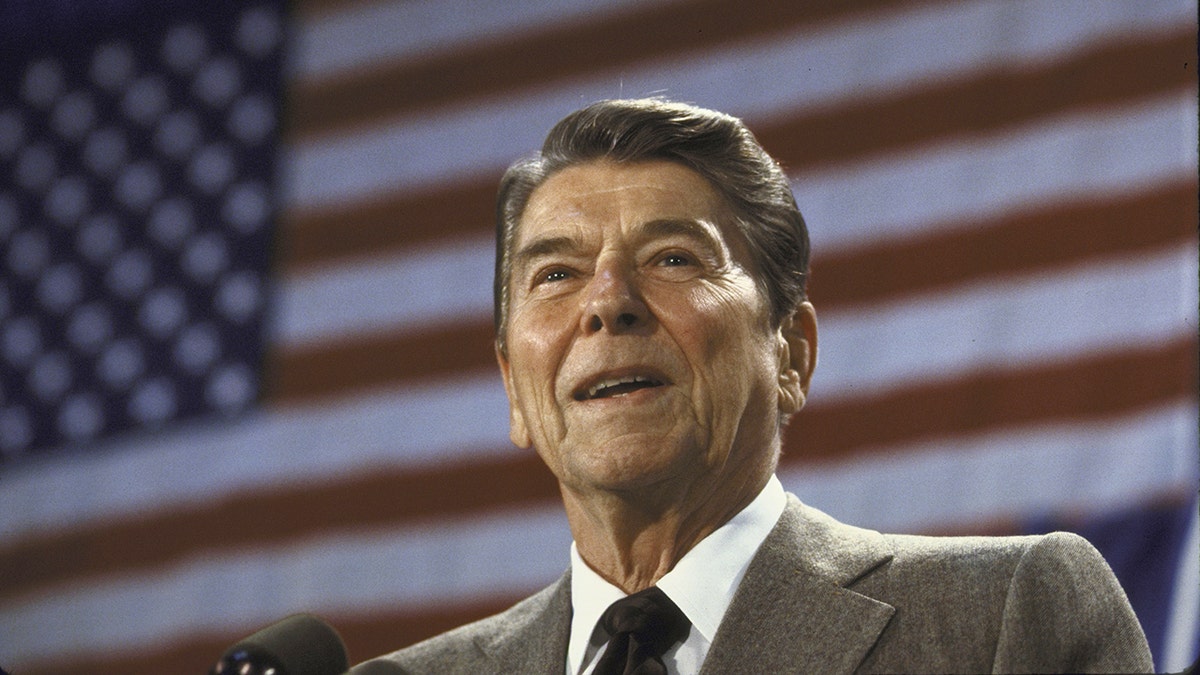
President Ronald Reagan sought "to avoid a nuclear war while preventing a single hostile power or coalition of powers from dominating the Eurasian land-mass or other strategic regions," an attempt to contain Russia. (Dirck Halstead/Getty Images)
CLICK HERE TO GET THE FOX NEWS APP
Similarly, President George H. W. Bush’s administration, faced with the collapse of the Soviet Union, sought to prevent the domination of former Soviet bloc countries by a hostile power and "the potential consolidation of control by such a hostile power over the resources" within what it viewed as a critical U.S. security region. Putin, clearly aiming to diminish U.S. power projection, has made it Russia’s official foreign policy "to counteract military interventions into sovereign states under the guise of responsibility to protect" human rights.
Neither Moscow nor Washington feels that it has any incentives to moderate its behavior. The United States and China have strong economic ties that play a large role in their relationship. But Russia and America have no similar stake in their relationship. The expectation in the Kremlin is that both countries, and presidents, would be doing whatever is necessary to defend and pursue their national interests, including fighting over ultimate control over Ukraine, until the last Ukrainian standing, if necessary.
Putin’s anti-U.S. policy is epitomized in the following assessment made by an analytic agency with direct links to the Kremlin: "The United States will strive to weaken and dismember the rest of the world, and first of all the big Eurasia. This strategy is pursued by the White House regardless of whether it is occupied by the conservative or liberal administration or whether or not there is consensus among the elites."
Opposing concepts of trust make the goal of normalizing relations between Russia and the U.S. unattainable. No, we cannot – ever – be friends with Putin and his Russia. But we should still strive to avoid World War III.








































